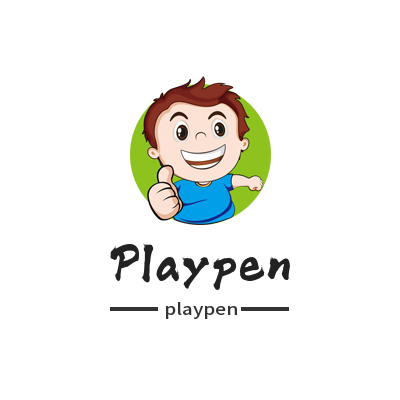Yes, a playpen can help parents manage their time better. Here is some information on how playpens can help with time management:
Free to take care of business: When parents need to take care of some necessary business, placing children in a playpen can provide a safe environment where parents can focus on completing tasks. For example, parents can cook, do laundry, do housework or answer emails right next to the playpen. This way, they don’t have to be with their children all the time, but can do some work that requires concentration inside the playpen.
Time planning and scheduling: With a toddler playpen, parents can plan and schedule their time better. They can use the safe space provided by the fence to allocate specific time periods to different tasks. For example, parents can set a period of time dedicated to household chores and another period of time to focus on work or personal activities. Such time planning can improve efficiency and allow parents to better balance taking care of children and dealing with other matters.
Rest and self-care: A playpen can also provide parents with some valuable time to rest and care for themselves. Parenting is hard work, and parents also need to take care of their own physical and mental health. While children play safely in the playpen, parents can use the time to relax, rest, exercise, or perform other self-care activities. This helps reduce parents’ stress and fatigue and improves their happiness and quality of life.
It is important to note that playpens should not be viewed as a complete replacement for parental companionship and close interaction. Parents still need to have close contact, communication and play with their children to meet their emotional and social needs and establish a good parent-child relationship. Children's playpens are only auxiliary tools at specific times and situations and should be combined with other parenting methods and activities to promote the overall development of children.

When it comes to the topic of playpens, there is some additional information available:
Safety: Child playpens are designed to provide a safe area in which children can move freely while keeping them out of contact with potentially dangerous items or areas. Children's playpens are usually made of sturdy materials with safety locks and stable construction to ensure that children cannot easily climb out or knock over the playpen.
Monitoring and supervision: Child playpens can help parents better monitor and supervise their children. By placing children in a playpen, parents can more easily observe their behavior and activities to ensure their safety. In addition, some children's playpens are equipped with surveillance cameras or sensors, allowing parents to remotely monitor their children's conditions, providing additional security.
Education and entertainment: Children's playpens can also be a place for education and entertainment. Parents can set up a variety of toys, books and learning activities in the playpen to promote their children's cognitive, language and motor development. This purposeful educational and recreational environment helps children learn and grow.
Limit dangerous areas: Children's playpens can also help parents limit their children's activities, especially if there are some dangerous areas or places at home that are prone to injury. For example, a fence can be used to prevent children from entering the kitchen, stairs, or other areas where accidents may occur. This helps keep children safe while easing parental worry and regulatory pressure.
Travel and outdoor use: Children's playpens are usually foldable and portable, suitable for use during travel or outdoor activities. They can be quickly set up and taken down in different locations, providing a familiar and safe space for children while making it convenient for parents for travel or outdoor activities.
It is important to note that a playpen should not be viewed as a complete replacement for parents’ companionship and care of their children. Parents still need to give their children enough care, close contact and interaction to meet their emotional and social needs and establish a good parent-child relationship. Children's playpens are only auxiliary tools at specific times and situations and should be combined with other parenting methods and activities to promote the overall development of children.

